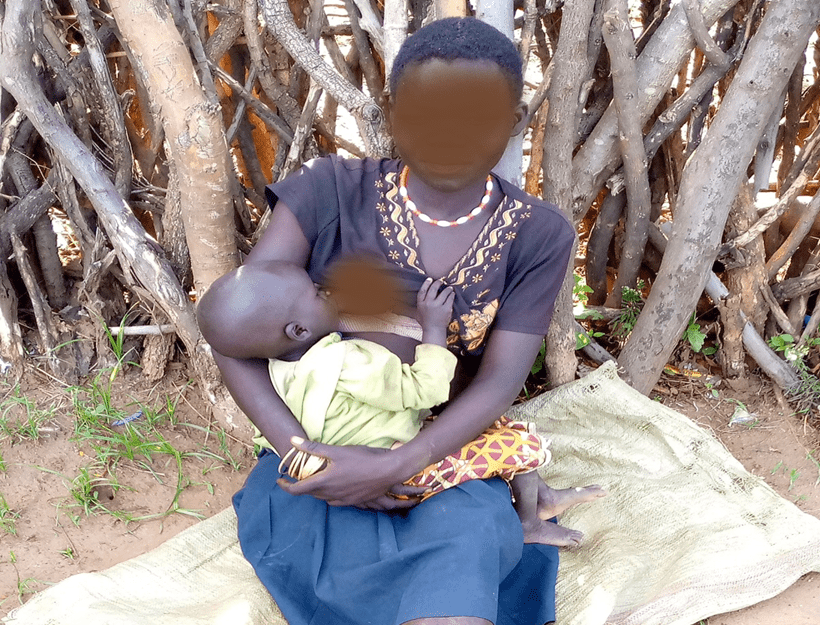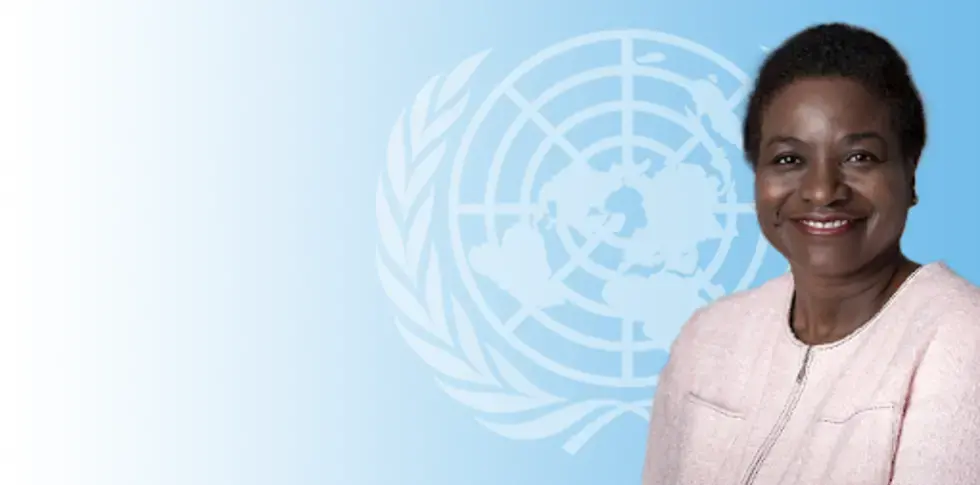Abuun Rosemary, 23, is a rising businesswoman. Living in Nakosowan village, Kaboong district in north-eastern Uganda, she makes a living selling local brew to support herself and her two-year-old son. She is a strong member of the Nakosowan Empowerment and Livelihood for Adolescents (ELA) club, and a strong advocate for sexual and reproductive health and rights, for people living with HIV/AIDS.
Abuun courageously tells her story of change:
“I am a single mother of one and I am living positively. I come from an extended family of which girls are seen as a source of wealth and therefore no need for education, but rather groomed for marriage at an early age. So, at the age of 20 my father started to put me under pressure to get married to a much older man. I was not interested in marriage, but due to the increasing pressure from my father to get married, I accepted the proposal from the much older man.
Initially, everything seemed fine, so much so that I accepted to have unprotected sex with my partner, eventually becoming pregnant.
However, after I gave birth to our son he started to change. He started sleeping with other women in the village. Initially, it did not bother me but when he became physically abusive I decided to leave him and run back to my parents’ home. It was not easy staying around home as someone who had failed in marriage, people talked. My baby too started falling sick more often, I got more stressed. I was so worried, all I could think about was death. I knew my life was over.
In the midst of all that, I got to know about BRAC Uganda ELA programme. I attended a community awareness event that was conducted by BRAC staff and the local community leaders in my village. When they asked for those who were interested in joining the Club, I gained courage and decided to join ELA.
ELA is such a stress reliever, most especially the Music Dance and Drama (MDD) sessions. This is because whenever I sing, it helps me forget all my problems. Initially some adolescents would laugh at me because they knew I was married to a man who is HIV positive. I felt stigmatized.
However; one day after the HIV/AIDS session, our mentor at the ELA Club requested each one of us in attendance to undergo an HIV test. This was not an easy task for me because my colleagues kept saying that I could be HIV positive. I opened up to my mentor who encouraged me to get tested so that I would know my status. This is how I got to know that I was HIV positive.
Through counseling and support from my mentor, I started taking my drugs, my health improved greatly, my baby recovered, I now know my condition and as of today, I speak freely about living positively with HIV. I feel as healthy as an HIV negative person.
With time, I acquired a loan from a friend, together with the sales I made from my father’s goat I was able to start up my business of selling local brew. I later joined an ELA savings group. I now look forward to bringing up my child in a healthy environment regardless of our status. I would like to extend my heart felt gratitude to Brac and UNFPA for giving a helping hand and for helping the vulnerable youth in Uganda.”
Nakosowan is one of the 100 ELA clubs in six districts in the Karamoja region (Abim, Amudat, Moroto, Kaboong, Napak, Nakapiripirit) that are supported by UNFPA, with funding from the Austrian Development Agency (ADA). UNFPA works in partnership with BRAC Uganda to ensure that the ELA clubs are safe spaces where young girls access life skills education; financial literacy training; sexual reproductive health education; within a supportive social space that promotes gender equality and women’s empowerment, as endorsed by parents as well as local, cultural, religious and political leaders. The ELA club targets girls who dropped out of school due to teenage pregnancy, child marriage, or inability to afford school-fees. In 2020, at total of 11,000 vulnerable girls in the six target districts of Abim, Amudat, Moroto, Kaboong, Napak, Nakapiripirit were reached with sexual reproductive health information and services, in addition to and livelihood skills.
Story compiled by Christine Ouma/BRAC Uganda.





